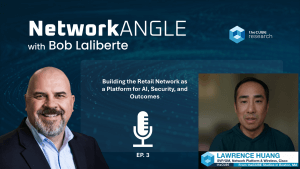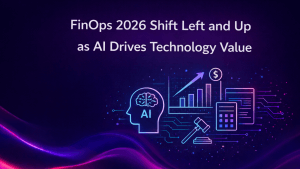The Wikibon community gathered yesterday and hosted a virtual panel of experts to discuss what’s needed, what’s missing and what’s the future of so-called hybrid cloud. The chat content is posted below. Our goal in the chat was to better understand how cloud was affecting business changes and what gaps needed to be filled to make hybrid cloud a reality. Here’s a brief summary of the questions we asked and the general comments that came out of the chat.
Q1. Cloud Adoption
In a survey Wikibon conducted five years ago, 90% of IT practitioners said cloud was “a buzzword of unclear meaning.” Today, 90% of practitioners in our surveys are doing some form of cloud. That’s a significant shift in sentiment. Prior to the chat we posted a poll question, asking the community “who most strongly influences organizations’ thinking on cloud adoption?” It was interesting to see the responses evolve over the course of several days. It started strongly favoring developers but then increasingly became weighted toward executives and line-of-business execs. As well, a significant number of folks voted for IT/Infrastructure Pros. Very few people voted for “Vendors” until the end of the voting period. Finally the vendor community received some recognition.
The consensus in the chat was that, of course, typically no single person in the organization makes the decision to move to cloud– it’s a multi-dimensional set of influencers that drives cloud adoption. Line-of-business people demand agility and speed-to-market, senior execs generally don’t want to over-invest in staff that does heavy IT lifting, many developers want the convenience of the cloud, IT people are ultimately tasked with cleaning up the mess of “shadow IT,” so they’re tuning in and vendors clearly have a role as innovators who spend heavily on R&D.
In the next hour, we addressed eight other issues, including the following:
Q2. Is/How is cloud a platform for change?
A main input from the experts was that cloud supports IT becoming more businesses-centric and less tech-focused. The implication is IT is increasingly becoming part of the core innovation team versus a pure cost center. Several hundred billion dollars is spent each year on IT labor related to infrastructure management. Organizations are shifting this spend toward digital initiatives and other more strategic activities. Wikibon forecasts indicate that roughly $200B will shift away from IT infrastructure management in the next ten years.
Q3. Objectives of cloud-driven business change.
What are critical goals of cloud-driven business changes? Cost? Delivery? Customer expansion?
Organizations are attracted to the cloud initially because of their interest in finding a lower cost model. The reality is that the real business value around cloud has less to do with cost reduction and is more related to speeding delivery of new products and services to the market, reaching new customers and generally gaining a competitive advantage – at least relative to existing business models. A challenge for organizations is that sustain competitive advantage requires constant innovation and generally, organizations feel cloud is a better platform to enable faster innovation.
Q4. Applications.
What are the classes of applications that are driving these business changes?
While many classes of applications are moving to the cloud and driving business change, core enterprise apps aren’t moving. Lots of data-oriented applications such as analytics are moving into the cloud and of course test and dev workloads. But SaaS workloads are getting the most traction. The key question that remains is will core business apps and mission critical systems move to the cloud? The motivation (on paper) is to increase agility, enable self-service, pay-by-the-drink and all the related public cloud attributes that have proven so attractive. But it’s unclear how quickly these will catalyze adoption for core apps.
Q5. What’s unique about hybrid cloud?
Is the hybrid cloud push coming from vendors or are there truly unique attributes of private/hybrid clouds relative to public clouds? Particularly as it relates to the core applications discussed in Q4., these systems are considered family jewels with strict compliance, governance, security and often data locality edicts. These attributes came up most often in the CrowdChat. The issue often is not that on-prem security (for example) is “better” than cloud. It’s more the case that customers have greater degrees of control, can more easily accommodate specialized corporate governance requirements (e.g. on-site audits) and other factors that are valuable to organizations. Hence the push for so-called hybrid cloud which ostensibly will allow for more customer control.
Q6. Developer Talent.
Q7. Gaps to realizing hybrid cloud’s vision.
Q8. What’s the role of infrastructure companies in a hybrid cloud world…i.e. what do they have to do to lead?
Q9. In five to ten years…will there be 5 or 5,000 infrastructure buyers?
It’s worth scrolling down to see the responses. Again – recommended viewing is the select ‘Transcript” on the CrowdChat pulldown which gives you a sequential view of the chat.
Thanks to all the hosts (cited below) that participated in the CrowdChat and the 70+ contributors who also posted.












